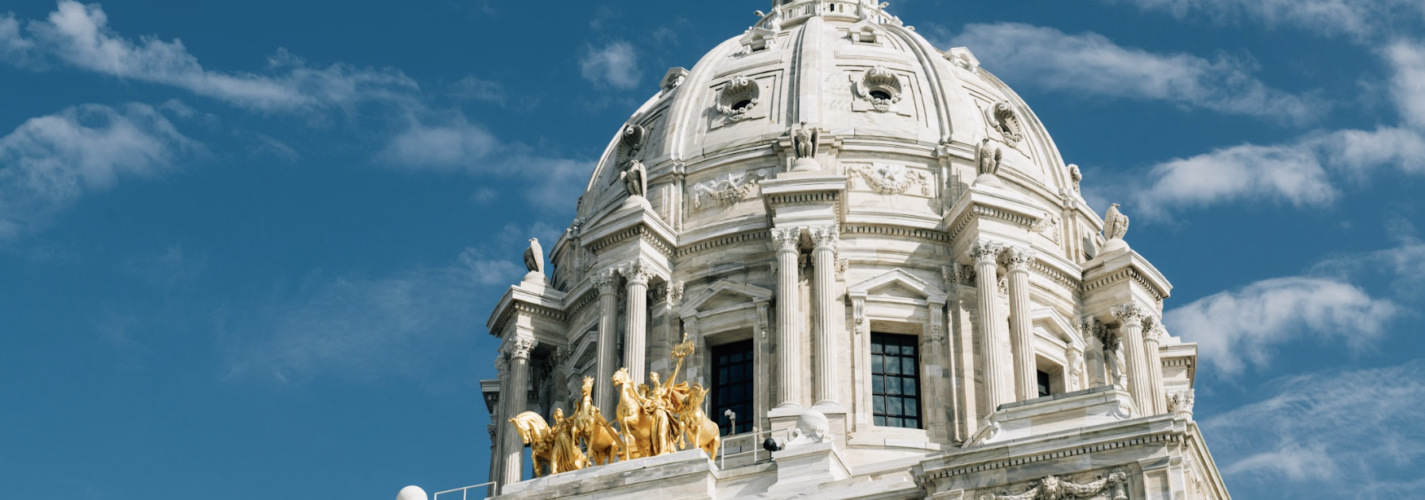A Wrap on the 2022 Session: Nothing Happened in the Room Where it Happens
By Matt Shaver
If a legislative body of 201 members, hundreds of staffers, and countless advocates spends four months drafting and debating legislation with few issues resolved and no substantial accomplishments for kids, does it make a sound?
This year began with reports of a historic surplus in the state budget that ballooned to $9.25 billion. This unprecedented situation created an opportunity for lawmakers to get collaborative and creative to address Minnesotan’s needs. On the whole, that did not end up happening—particularly in education. Significant areas of agreement were stymied by a handful of issues where the Democrats in the House and Republicans in the Senate simply chose not to see eye to eye, prioritizing election-year politics rather than coming back to the negotiating table to cut a deal.
Big Issues and Big Investments
Two issues dominated the discussion at the legislature this session with major investments up for negotiation that could address urgent needs of Minnesota students.
Special Education Cross-Subsidy
Every district in the state has a special education and English language learner budget gap, also known as the cross-subsidy. The state just doesn’t fund the full cost of these services, which hampers schools’ ability to provide what students deserve. This issue received major attention this year as a result of the advocacy of parents and educators; they saw the surplus as an opportunity to address one of many long-standing flaws in Minnesota’s education finance system.
When state leadership announced a bipartisan deal that, if passed, would allocate $1 billion in new spending for K-12 schools over the next three years, the special education cross-subsidy took center stage.Throughout numerous back and forth offers, the House and Senate toyed with using anywhere from $70 million to $950 million on the cross subsidy. Like many big-ticket items, the issue wasn’t whether or not both parties saw a need and a fix, but instead whether they could not find agreement on the size and shape of the fix.
Literacy
Literacy was the other significant area of focus and agreement between the House and the Senate. The Senate initially wanted to allocate $32 million on literacy training initiatives, while the House started at $7 million. The investments would ensure more students have educators trained in early literacy best practices, setting them up for long-term academic success. Over the last two weeks of session, the Senate moved to $52 million, with the House eventually matching in their final public offer—but the inability to come to agreement elsewhere resulted in the legislature walking away with the work unfinished.
Policies to Build a More Equitable Student Experience Left on Hold
Several policies that would have positively impacted the experience of students in school—reducing discipline disparities for young learners, maintaining access to universal meals in schools serving a high number of students in poverty, removing barriers to PSEO, and improvements in early literacy practices—were tantalizingly close to passing. But the legislature’s inability to come to agreement in all areas of its global deal ensured their failure and another year of inaction on Minnesota’s shameful education disparities.
Politics Block Progress for Students
All of this happened in the shadow of an election year where every member of the legislature and the governor are up for re-election. In the final days and hours of the 2022 session, the pivot to campaign season was apparent. Post-session talks of a special session left a glimmer of home, and drew significant calls for action from advocates and everyday Minnesotans (including EdAllies and our partners), but ultimately fizzled.
The big question now is what’s next. There were many “close-but-not-quite” policies that should be picked up and acted on next session, but how that plays out remains to be seen with a different political landscape ahead. No matter what happens in November, there will be turnover and change at the legislature. With dozens of retirements, incumbents who may not win reelection, and newly elected members, there will be new faces and new priorities—but hopefully a renewed will for our state to do better by kids. The urgency from families and communities will be significant, after real needs were left unmet this session.
Next year is a budget year, which means that unlike this year, action will be essential to keep state services operating. While there can’t be a “do-nothing” year, there will be some serious challenges for the Legislature to tackle, and now is the time for parents, students, and educators to start talking to policymakers to ask what they plan to prioritize and ensure they hit the ground running in 2023. We’ll be focused on ongoing education efforts, and ensuring the voices of those most impacted by Minnesota’s education inequities are at the center.

